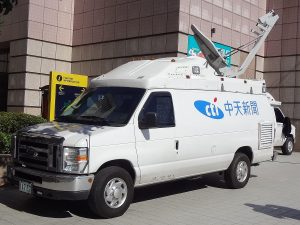Taiwan’s Chung Tien Television (CTiTV) went off air on midnight Friday after its broadcast license was not renewed in a move critics claim is politically motivated.
The National Communications Commission (NCC) denied CTiTV its license last month, citing “repeated violations of regulations and the failure of its internal discipline and control mechanisms.”
CTi News is known for its China-friendly viewpoints and its opposition to the ruling Democratic Progressive Party (DPP). It is owned by the Want Want China Times group, which is helmed by Tsai Eng-meng, a Taiwanese businessman openly sympathetic to the Chinese government.
Numerous media reports last year alleged properties owned by Want Want received funding and editorial direction from authorities in China. Want Want has denied these claims.
The decision is a starkly divisive move along political lines and will likely remain a flashpoint going forward, even as it’s received little international attention. CTiTV racked up large viewership numbers among older Taiwanese citizens and supporters of the opposition Kuomintang (KMT).
The NCC has fined CTiTV and other Want Want properties on numerous occasions for broadcasting false information, usually critical of President Tsai Ing-wen and supportive of Han Kuo-yu, her opponent in January’s presidential election.
The fines by the NCC were popular among the DPP’s political base but received heavy criticism from KMT officials, who accused the independent agency of becoming politicized. NCC chairperson Nicole Chan resigned in April 2019 over what she said were concerns that the commission was being pressured by DPP legislators to take punitive action against media outlets.
The NCC said its November 18 decision not to renew CTiTV’s license was standard and within its rights. Broadcast licenses must be renewed every six years. The NCC had not rejected a license renewal request since 2006.
Taiwan’s Supreme Administrative Court on Friday rejected an appeal by CTiTV after a lower court rejected its request for an injunction to stop the shutdown.
KMT politicians have accused the Tsai administration of subverting press freedom and called for international attention in a Thursday press conference.
“The NCC’s failure to be properly independent and objective not only undermines press freedom, but worse, its failure tarnishes the very democracy and freedom enshrined in our constitution, and causes our nation to trend toward dictatorship,” said KMT chairman Johnny Chiang.
Former President Ma Ying-jeou also spoke at the event and accused Tsai Ing-wen of reneging on her own stated commitment to press freedom.
The KMT has also alleged the Tsai administration knew in advance of the decision not to extend CTiTV’s license, citing files it says were leaked from the Presidential Office in May.
Reporters Without Borders said in November the non-renewal of CTi News license was regrettable, although it said the decision by the NCC “does not go against press freedom.”
NCC chairperson Chen Yaw-shyang said in November he hoped an opportunity would be given to the Taiwan Broadcasting System news channel to fill the void left by CTiTV.
Although media reports have said Want Want’s media properties received direct funding from Chinese sources, the NCC did not provide evidence of this. Press freedom watchdogs have in the past been critical of the NCC’s role as a content arbiter and have called for Taiwan’s government to instead investigate media outlets that may be violating finance or security laws.
The NCC cited examples of CTiTV’s inability to operate with editorial independence and provided evidence of Tsai Eng-meng, the chairman, interfering in news operations.
This will not quiet accusations by the KMT and its supporters that CTiTV was unfairly targeted in a media landscape where outlets on all sides of the political spectrum have operational flaws. Among DPP supporters tired of CTi News’ false and misleading broadcasts, however, the network will not be missed.

































